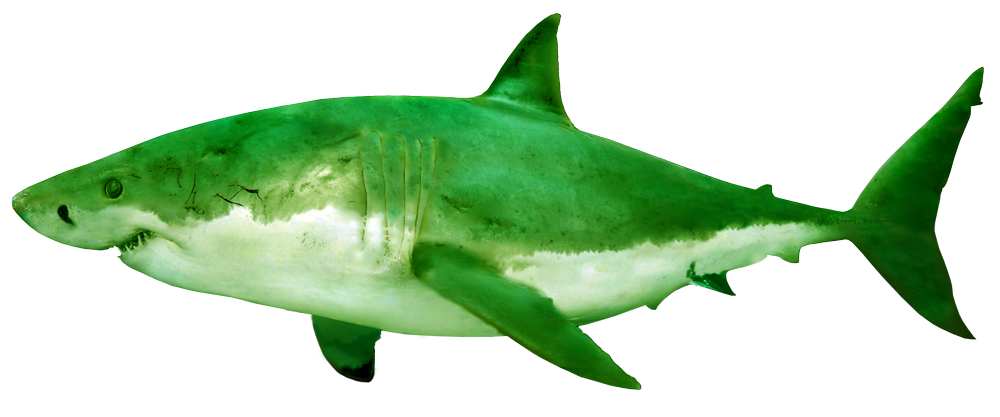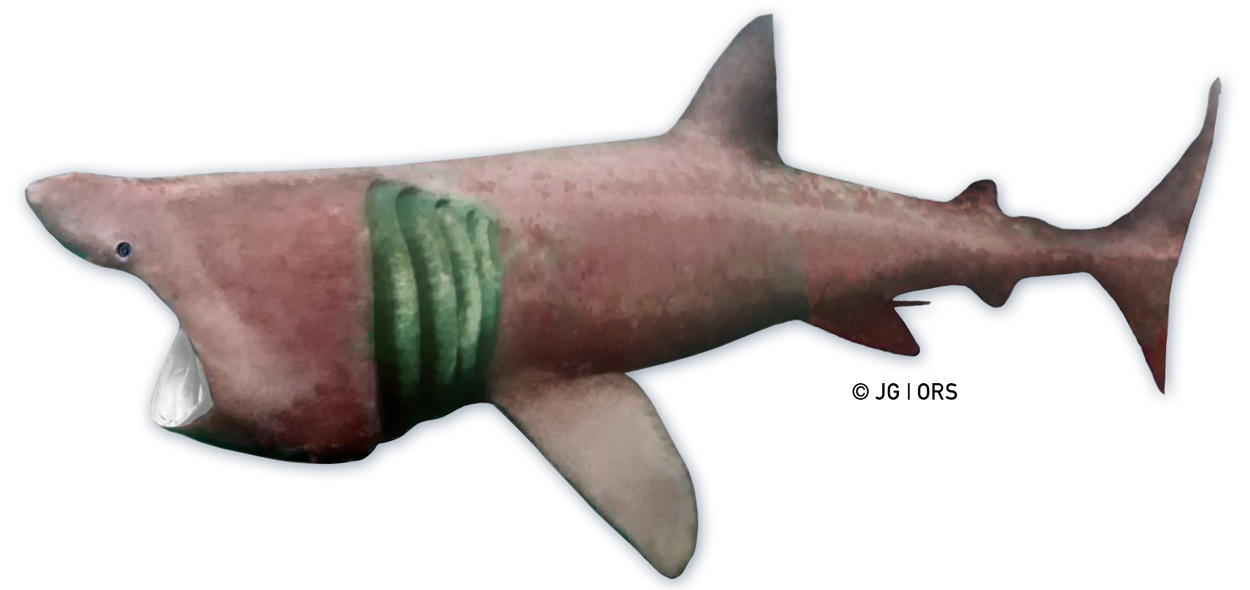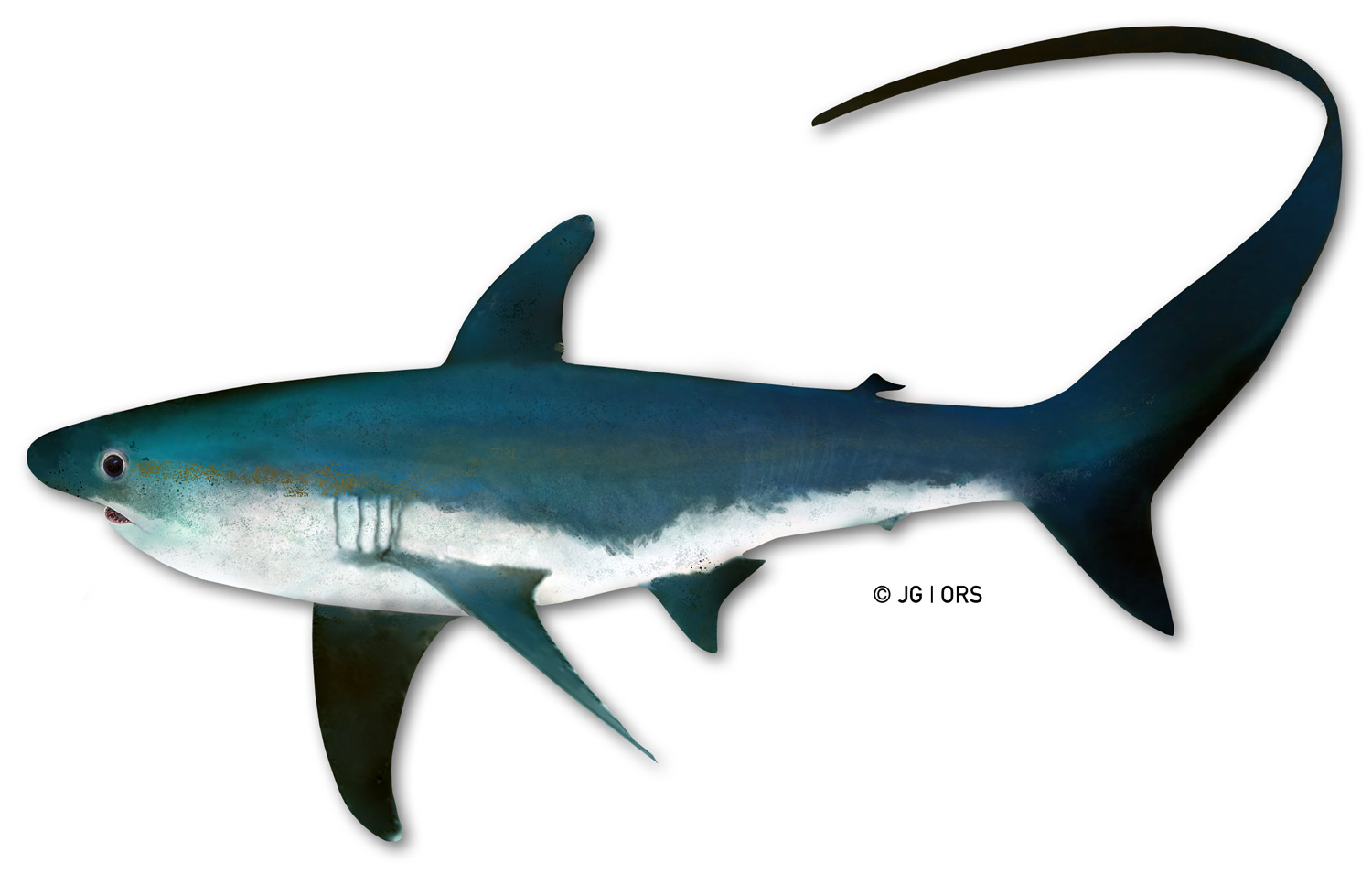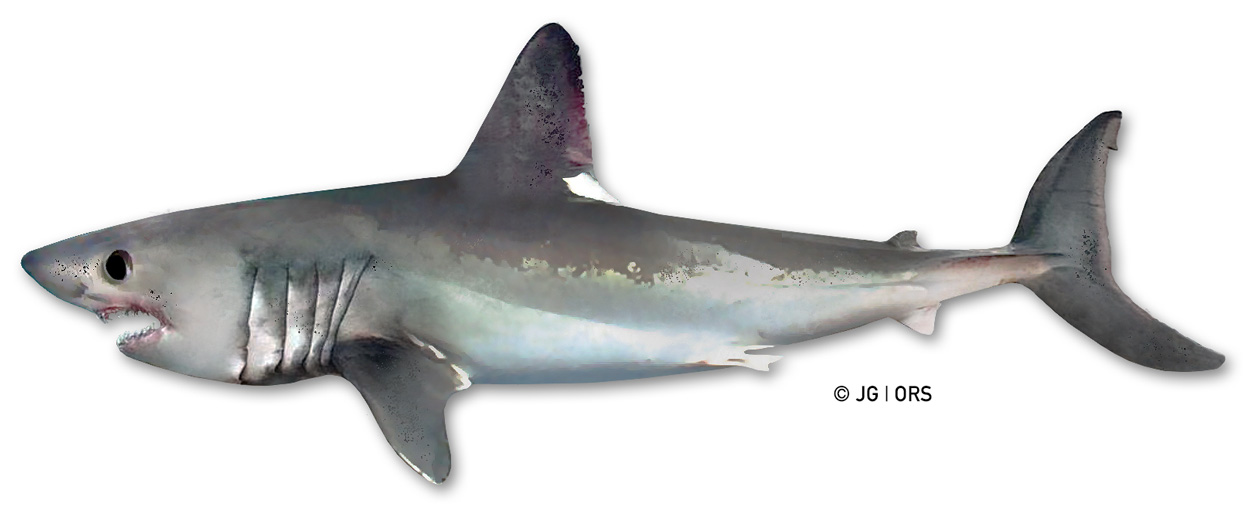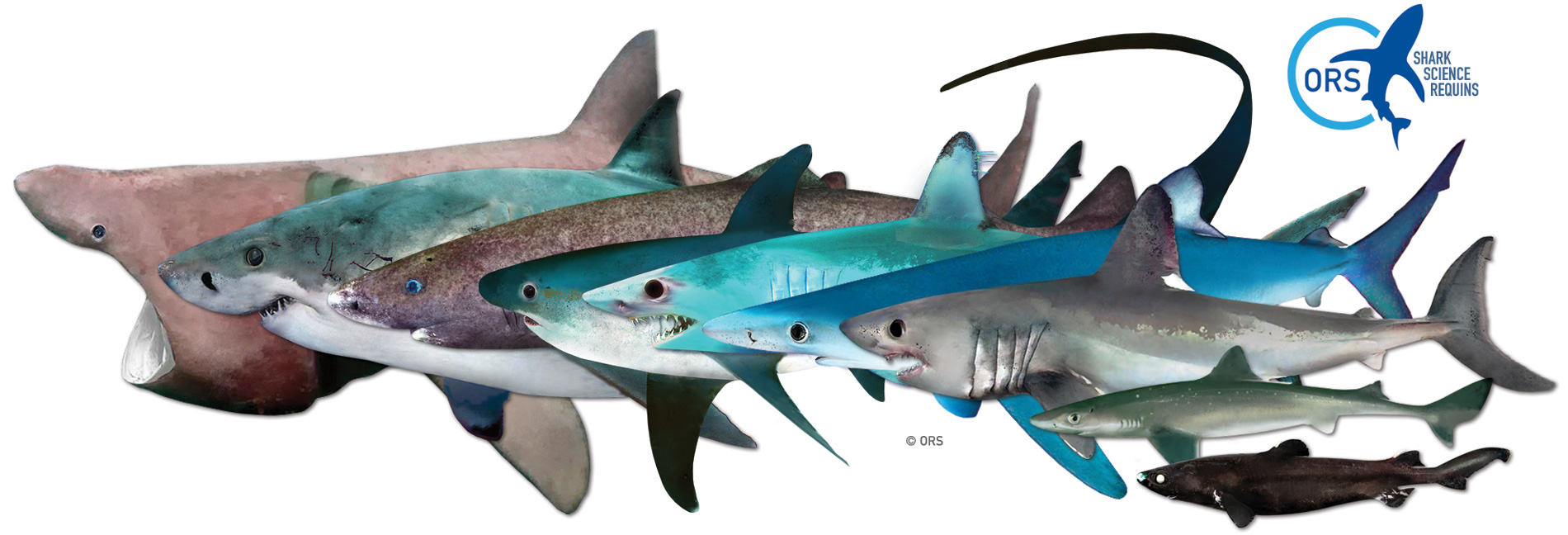[social_warfare]
The Sharks of the St. Lawrence
At least eight shark species are known to frequent the St. Lawrence Gulf and Estuary but only the Greenland shark and the black dogfish remain year-round¹. None are new or unusual visitors. All eight species have likely frequented the St. Lawrence since the end of the last ice age, some 10,000 years ago. The St. Lawrence is also home to at least seven species of skate and one ray. New elasmobranch species will likely be reported in the near future as the St. Lawrence continues to warm due to climate change.
¹ Two recent winter captures of the spiny dogfish (Squalus acanthias) in the Saguenay Fjord call into question the species’ status as a seasonal (summertime) resident.

Note on the shortfin mako shark (Isurus oxyrinchus): The most cited reference of the mako shark in the Gulf of St. Lawrence is Templeman 1963¹, and yet Templeman states that “no authentic record of the sharp-nosed mackerel shark, Isurus oxyrinchus, has yet been obtained from the Newfoundland area.”
A small number of captures are reported in DFO at-sea observer data² (DFO Gulf, 1997-2013) off the western coast of Newfoundland and in the Cabot Strait. A few may be cases of misidentification of the porbeagle shark (Lamna nasus), which is frequently mistaken for the shortfin mako in the St. Lawrence, but DFO officials are confident that the majority of these reported sightings are indeed the shortfin mako. If you have any further evidence that would confirm the presence of the shortfin mako in the Gulf of St. Lawrence, please contact us.
¹ Templeman, W. 1963. Distribution of sharks in the Canadian Atlantic (with special reference to Newfoundland waters). Bulletin of the Fisheries Research Board of Canada 140. 77 pp.
² Showell, M.A., G.M. Fowler, W. Joyce, M. McMahon, C.M. Miri, and M.R. Simpson. 2017. Current status and threats to the North Atlantic shortfin mako shark (Isurus oxyrinchus) population in Atlantic Canada. DFO Can. Science Advisory Secretariat Research Document 2017/039. v + 45 p.
Shark Distribution
Appearances can be deceiving… Although human activity has dramatically impacted their numbers, sharks are increasingly being reported throughout the St. Lawrence every year thanks in large part to the advent of smartphones and social networking. Despite the growing number of observations, most species are nonetheless in decline due to overfishing and by-catch. Sightings of known resident sharks as well as new species should continue to increase as the St. Lawrence warms due to climate change, which makes environmental and foraging conditions more hospitable for longer periods.
Provisional distribution of the sharks of the St. Lawrence and Atlantic Canada based on research by the St. Lawrence Shark Observatory (ORS). This map is updated with new and historical data on an ongoing basis. Map does not include data from the U.S. except for the Greenland shark and borderline cases. To submit additional sightings or captures, please contact us. Click on icons for observation details.
Fear and apathy bite deeper than any shark…
— Jeffrey Gallant, ORS
Not just pretty faces, sharks play a critical role in North Atlantic ecosystems, but they are under increasing threat due to their unfair reputation and a lack of public awareness. Please donate to help us study and protect the sharks of the St. Lawrence and Atlantic Canada before it’s too late.
Donations to ORS/GEERG, an all-volunteer charitable not-for-profit organisation, are tax deductible in Canada.
Canada Revenue Agency #834462913RR0001








